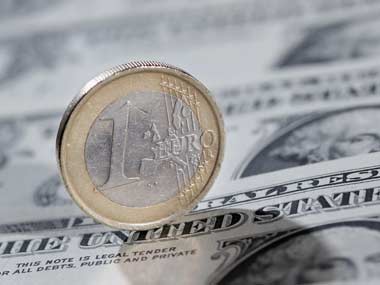Europe’s troubles just don’t seem to end, and the political cost of the financial crisis is rising with each passing day. TheInternational Monetary Fund and the European Union are finalising a second bailout for Greece - the heavily indebted country that looks likely to drag the whole eurozone project into the ditch. But since the bailout package comes with tough conditionalities for budget cutbacks and severe austerity, protests are mounting on Athens’streets , with anger directed at politicians and bankers, in particular.
But economists are growing increasingly sceptical about the effectiveness of these successive bailout measures. The concern remains that Greece will eventually default on its mounting debt despite such stop-gap measures.
[caption id=“attachment_20871” align=“alignleft” width=“380” caption=“The Euro crisis threatens to turn into a major political crisis. Image: Getty Images.”]
 [/caption]
[/caption]
Reuters reports that the new aid package for Greece could cost more than 100 billion euros ($144 billion). Quoting from a German magazine, Der Spiegel, the agency reports that this comes on top of the last year’s 110 billion-euro bailout package.
Less conservative estimates put the second bailout package for Greece at about 65 billion euros, but Der Spiegel reckons it could rise to more than 100 billion euros because the Greek government bonds will need follow-up financing in 2014.
Impact Shorts
More ShortsBBC reports that the next tranche of the 110 billion euro bailout package would be paid to Greece most likely in July. Yet, the fear is that Greece had not made adequate progress towards cutting its mountain of deficits. BBC quoted Jean-Claude Juncker, head of the group of eurozone finance ministers, as saying, “I expect the Eurogroup to agree to additional finance being provided to Greece under strict conditionality.” He also made it clear that “… there will not be an exit of Greece from the euro area, there will be no default and Greece will be able to fully honour its obligations.”
Economists worry that the second Greek bailout will probably deepen the eurozone crisis and that a default seems inevitable at this stage, the New York Times reports . And even if Greece avoids a default at this stage, the economists reckon, the European Union will probably need to provide aid for a much longer period to Greece. The report quotes Martin N Baily, a senior fellow at the Brookings Institution, who served as chairman of Council of Economic Advisers under the Clinton administration, as saying: “I don’t see how Greece can eventually avoid some kind of default..It’s hard to see how you can avoid the need to finance this over the next five to 10 years.”
Others, however, see the troubles in the eurozone as a chance to fix the flaws, which aren’t, in their estimation, fatal. The Wall Street Journal notes thatthe debt crisis “has created an impetus for reforms that could make the union more viable.” It quotesBarry Eichengreen, economist at the University of California, Berkeley, as saying: “If Europe takes these lessons to heart…then the euro will emerge from its crisis strengthened.”
The Greek newspaper Kathimerini points to the simple maths of the Greek crisis to suggest that its problem is insurmountable. Even if Greece’s primary debt is completely wiped out by 2012-2013, it needs to have more than 84 billion euros to pay off loans. Therefore, even a loan of 60-65 billion euros will leave a shortfall of 20-25 billion euros. The argument is that this amount is supposed to be covered by privatisations and the sell-off of state assets. But, as the report notes, life won’t end in 2013 and Greece will still need to find the tens of billions of euros it needs annually to service its massive debt.
In other words, throwing good money after bad isn’t going to help Greece or the eurozone economies. There’s no stopping the downward spiral…
)